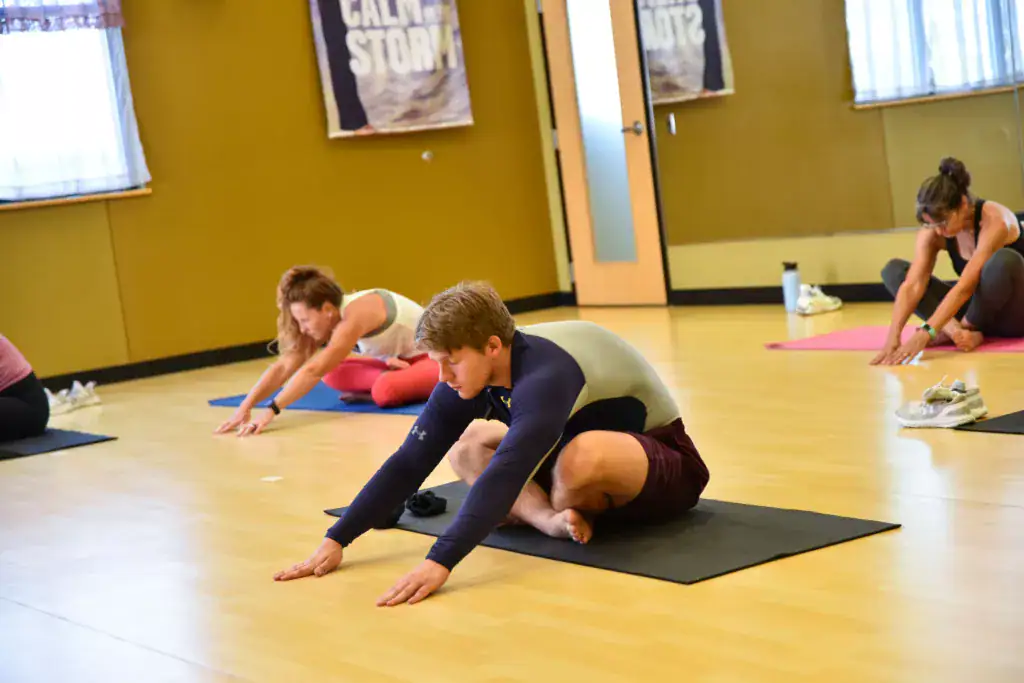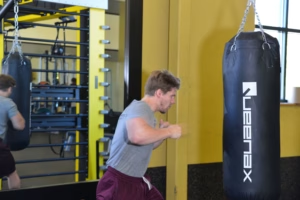Recovery is an essential yet often overlooked aspect of any fitness regimen. Whether you’re a seasoned athlete, a regular gym-goer, or a weekend warrior, understanding and implementing effective post-workout recovery strategies can significantly enhance your performance and prevent injuries. Proper recovery helps repair and strengthen your muscles and ensures you’re ready and able to tackle your next workout with full intensity.
In this blog, we’ll explore various proven strategies for post-workout healing that will help you minimize soreness, replenish energy, and maintain long-term fitness. Join us at Platinum Fitness as we dive into the best practices for cool-down exercises, nutrition, hydration, sleep, and active recovery days, empowering you to achieve your health and fitness goals more effectively.
Nutrition and Hydration
Proper nutrition and hydration are foundational to effective post-workout recovery. Consuming the right nutrients after exercise helps repair muscle tissues and replenish energy stores. However, it’s crucial to understand that hydration is not just about replacing fluids lost through sweat. It’s also about maintaining cellular function, which is why adequate hydration is so important.
Protein is vital for muscle repair. To facilitate muscle recovery, aim to consume a protein-rich snack or meal within 45 minutes after your workout. Options like a protein shake, Greek yogurt, or chicken salad can be effective.
Carbohydrates are also important to refill glycogen stores, especially after endurance or high-intensity workouts. Include a balanced amount of carbs, such as fruit, oatmeal, or whole-grain bread, alongside your protein.
Hydration should not be neglected, as mild dehydration can hinder recovery and performance. Water is typically sufficient for short workouts, but for sessions lasting longer than an hour, consider a drink containing electrolytes to replace sodium and other minerals lost in sweat.
By integrating these nutritional strategies, you’re not just speeding up recovery and reducing muscle soreness. You’re also preparing yourself for your next fitness challenge, ensuring you stay on track with your fitness goals. The benefits are clear, and they’re within your reach.
Importance of Sleep in Recovery
Sleep is a powerful tool in the post-workout recovery arsenal, essential for both physical repair and psychological well-being. During sleep, your body undergoes critical repair processes vital for muscle recovery, consolidation of skill learning, and overall performance enhancement.
Quality sleep promotes growth hormone production, which plays a crucial role in tissue growth and muscle repair. Ensuring you get enough deep sleep is crucial because most muscle repair occurs during these stages.
Consistency in sleep patterns also matters. Aim for 7-9 hours of sleep per night and try to go to bed and wake up at the same time every day, even on weekends. This regularity helps your body maintain its natural circadian rhythms, optimizing recovery.
Creating a sleep-conducive environment can significantly enhance the quality of your sleep. Keep your bedroom cool, dark, and quiet, and consider establishing a pre-sleep routine that may include activities like reading or meditating to wind down from the day.
By prioritizing sleep as part of your recovery strategy, you can improve your physical fitness outcomes, daily cognitive function, and overall health.
Active Recovery Days
Incorporating active recovery days into your fitness regimen is crucial for maintaining ongoing physical activity and a balanced fitness routine without overstressing your body. Active recovery involves engaging in low-intensity exercise following more intense workout days.
Active recovery helps maintain blood flow to muscles, aiding nutrient delivery and waste removal and reducing muscle stiffness and soreness.
Activities suitable for active recovery include:
- Light walking or cycling: Gentle movement helps loosen tight muscles without significant strain.
- Yoga: Its stretching and mindfulness components make it an excellent choice for recovery, helping to improve flexibility and reduce stress.
- Swimming: The buoyancy of water provides a low-impact environment for gentle muscle engagement and relaxation.
The key to active recovery is to keep the activity light and easy; it should feel refreshing and not exhausting. By strategically planning active recovery days, you can enhance your overall training performance, prevent injuries, and ensure your body is well-prepared for the next round of intense workouts.
Maximize Your Recovery with Platinum Fitness
Adequate recovery is as important as the workout for achieving optimal fitness results and maintaining overall health. At Platinum Fitness, we understand the crucial role of recovery and are here to help you every step of the way.
Visit us at Platinum Fitness to learn more about how our tailored recovery strategies can enhance your training outcomes. Our expert trainers and state-of-the-art facilities are equipped to guide you through the perfect cool-down routines, nutritional planning, sleep hygiene tips, and active recovery sessions explicitly tailored to your needs.
Don’t let inadequate recovery slow down your progress. Join Platinum Fitness today and take full advantage of our comprehensive recovery solutions to keep you performing at your best.
With a balanced approach to exercise and recovery, we can help you not just meet but exceed your fitness goals and improve your mental health.



